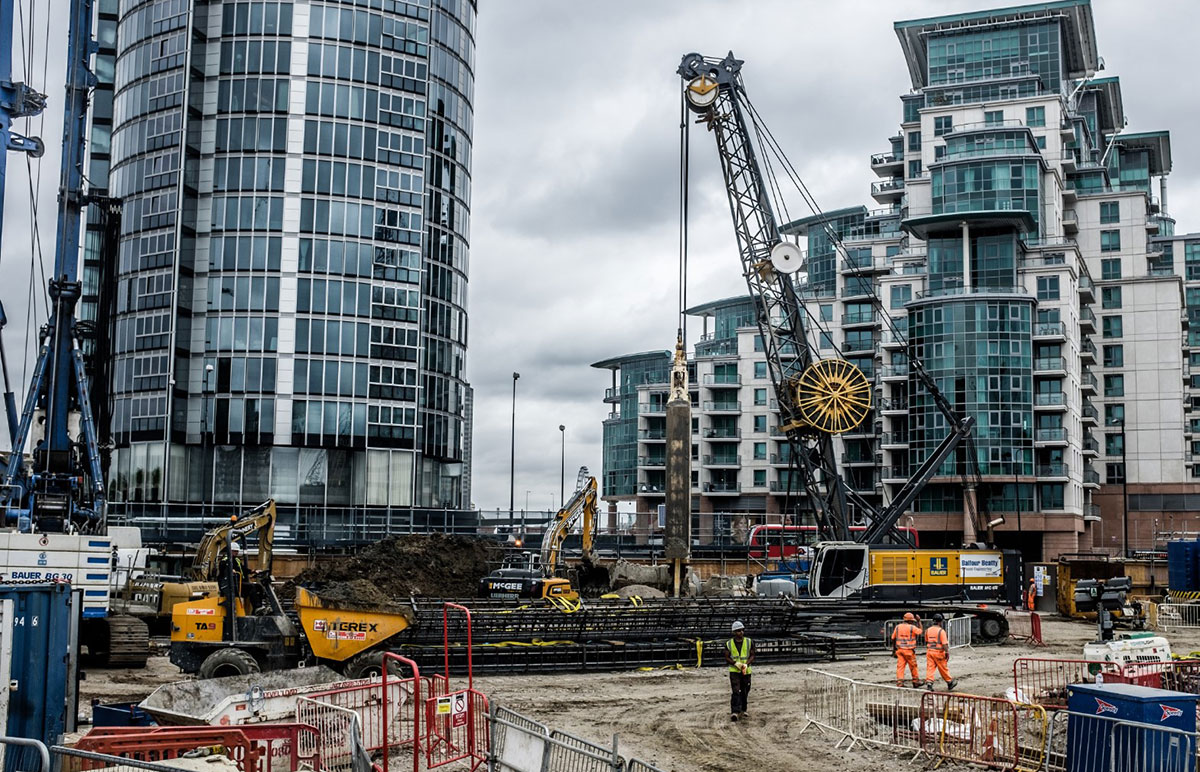Not known Factual Statements About Geotheta
Not known Factual Statements About Geotheta
Blog Article
Not known Factual Statements About Geotheta
Table of ContentsThings about GeothetaThe 6-Second Trick For GeothetaGeotheta Fundamentals ExplainedFascination About GeothetaGeotheta for Dummies

They conduct site examinations, collect examples, execute lab examinations, and analyze information to review the suitability of the ground for building jobs - Geotechnical Engineers. Based on their findings, geotechnical designers offer suggestions for structure style, slope stability, retaining frameworks, and reduction of geotechnical hazards. They collaborate with other professionals, such as designers, architectural engineers, and building groups, to make certain that geotechnical factors to consider are incorporated right into the general job style and application
By examining the actions and residential properties of dirt and rock, they can determine prospective geotechnical dangers such as landslides, dirt settlement, or slope instability. Their experience helps stop failings or crashes that might jeopardize lives and home. Right here are some comprehensive duties and obligations of a geotechnical engineer: Site Investigation: Geotechnical designers conduct website examinations to collect information on subsurface problems.
They interpret the information to comprehend the properties and actions of the soil and rock, including their strength, permeability, compaction features, and groundwater problems. Geotechnical Analysis and Layout: Geotechnical engineers assess the information collected throughout website investigations to analyze the security and suitability of the site for building jobs. They carry out geotechnical estimations and modeling to review aspects such as birthing capacity, negotiation, slope security, lateral earth pressures, and groundwater circulation.
Some Known Questions About Geotheta.
Foundation Design: Geotechnical engineers play an essential function in making structures that can safely sustain the desired framework. They assess the dirt conditions and lots demands to identify the proper foundation kind, such as shallow structures (e.g., grounds), deep foundations (e.g (https://www.cheaperseeker.com/u/geotheta)., heaps), or specialized techniques like dirt improvement. They think about factors such as settlement limitations, birthing capacity, and soil-structure communication to create optimal structure designs
They evaluate construction plans, screen site activities, and carry out area examinations to validate that the design referrals are followed. If unpredicted geotechnical concerns occur, they assess the circumstance and offer referrals for removal or modifications to the layout. Threat Analysis and Mitigation: Geotechnical designers analyze geotechnical dangers and dangers linked with the job site, such as landslides, liquefaction, or dirt erosion.

Cooperation and Interaction: Geotechnical designers work closely with other specialists associated with a task, such as designers, structural engineers, and building teams. Efficient communication and cooperation are important to incorporate geotechnical factors to consider right into the general project design and building and construction process. Geotechnical designers provide technological competence, answer questions, and ensure that geotechnical requirements are met.
The Main Principles Of Geotheta
Right here are some kinds of geotechnical engineers: Structure Engineer: Structure engineers concentrate on developing and examining foundations for frameworks. They analyze the soil problems, tons demands, and site features to establish one of the most ideal structure kind and layout, such as shallow foundations, deep structures, or specialized methods like stack foundations.
They examine the elements influencing slope security, such as soil properties, groundwater conditions, and slope geometry, and create strategies to avoid incline failings and mitigate dangers. Quake Engineer: Quake designers concentrate on evaluating and creating frameworks to stand up to seismic pressures. They evaluate the seismic danger of a website, assess dirt liquefaction potential, and establish seismic design requirements to make certain the blog security and strength of frameworks during earthquakes.
They execute field testing, accumulate samples, and analyze the collected data to define the dirt buildings, geologic developments, and groundwater conditions at a website. Geotechnical Instrumentation Engineer: Geotechnical instrumentation engineers concentrate on tracking and determining the behavior of soil, rock, and structures. They install and maintain instrumentation systems that keep an eye on factors such as soil settlement, groundwater levels, slope activities, and architectural variations to examine performance and provide early warnings of possible concerns.
Geotheta for Beginners
They conduct examinations such as triaxial tests, combination tests, straight shear examinations, and permeability tests to gather information for geotechnical analysis and design. Geosynthetics Engineer: Geosynthetics engineers specialize in the layout and application of geosynthetic products, such as geotextiles, geogrids, and geomembranes. They make use of these products to boost dirt security, reinforce slopes, give drainage remedies, and control erosion.
They have a tendency to be investigatory individuals, which means they're intellectual, introspective, and inquisitive. They wonder, methodical, sensible, analytical, and logical. Some of them are also social, implying they're kind, generous, participating, client, caring, practical, understanding, skillful, and pleasant. Does this seem like you? Take our complimentary profession examination to discover if geotechnical engineer is among your top career matches.
In the office atmosphere, geotechnical designers utilize specialized software program devices to do calculations, produce styles, and assess information. They prepare reports, evaluation project specifications, connect with clients and employee, and coordinate task tasks. The workplace setting gives a conducive environment for research, analysis, and collaboration with various other specialists entailed in the project.
Excitement About Geotheta
They regularly check out job sites to conduct website investigations, examine geotechnical conditions, and gather information for analysis. These visits involve traveling to various places, in some cases in remote or difficult surfaces. Geotechnical engineers may perform dirt tasting, conduct tests, and screen construction tasks to make certain that the geotechnical facets of the job are being executed properly.
Geotechnical engineers additionally operate in specialized geotechnical research laboratories. In these facilities, they perform experiments, execute examinations on dirt and rock samples, and evaluate the design properties of the materials. Geotechnical lab engineers work thoroughly in these atmospheres, handling testing equipment, running tools, and videotaping information. They team up with other laboratory staff to ensure precise and reliable testing results.
Report this page